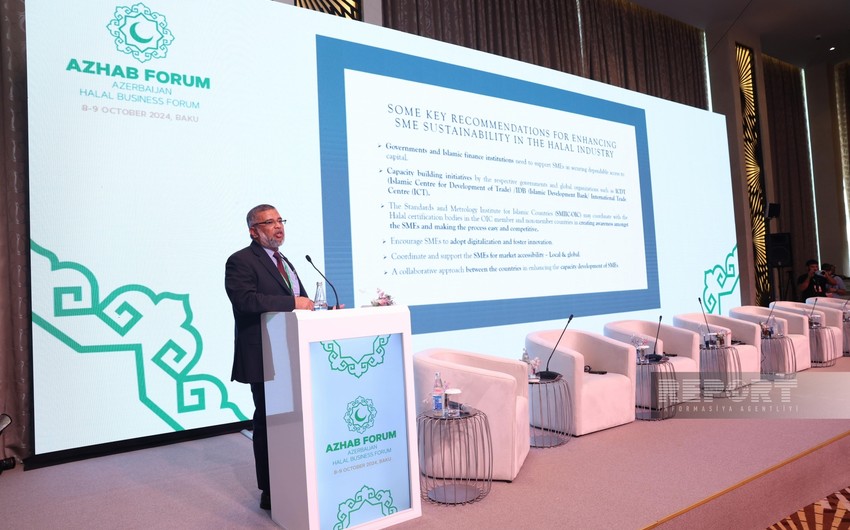In the era of the Fourth Industrial Revolution, integrating digital technologies is crucial for small and medium enterprises (SMEs) to create economic and social value, Irshad A. Cader, the CEO of Australia's Globothink and Halal Industry Consultants said at the Halal Business and Tourism Forum (AZHAB Forum) held in Baku, Report informs.
"Innovation forms the foundation of every successful business. In this regard, without necessary ICT skills and infrastructure, SMEs struggle to compete in both local and global markets," Cader emphasized.
He pointed out that the lack of relevant skills in SMEs is a significant problem, with many operating with low-quality workforces, an issue that became apparent during the COVID-19 pandemic. "This leads to reduced accountability and competitiveness among SMEs," he added.
Another obstacle SMEs face is obtaining halal certification. Cader cited limited knowledge, difficulties understanding the certification process, associated costs, and the lengthy time required to acquire certification as key challenges.
To overcome these hurdles, Kader suggested that governments and Islamic financial institutions should provide assistance. "One of the best models is the Indonesian model," he said. "In Indonesia, 57 million SMEs are operating, and the country's Bank Syriah Indonesia provides microfinance to these SMEs. This model could also be used in Azerbaijan."


 https://static.report.az/photo/d1c47d66-c9bb-34f2-8b1c-6f30c18acdb8.jpeg
https://static.report.az/photo/d1c47d66-c9bb-34f2-8b1c-6f30c18acdb8.jpeg

